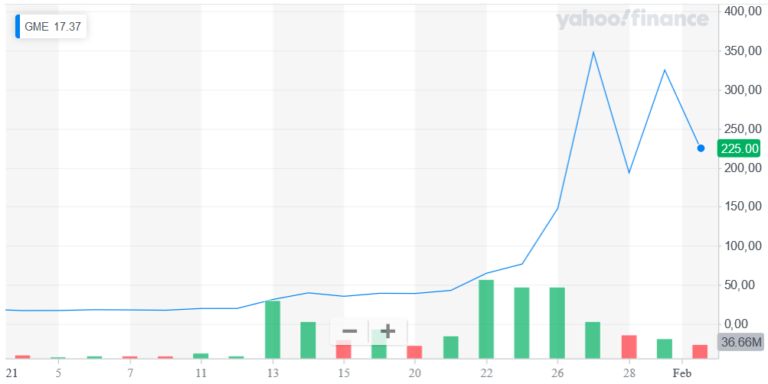Dear friends, dear interested,
This is good news for all retail investors: Yesterday, on 24 February, Steven Maijoor, the chairman of the European securities supervisor ESMA, promised me that his authority will take a closer look at the business models of the so-called neo-brokers. Ugo Bassi, responsible director at the European Commission, also announced an investigation. Both indicated that they view the new business models very critically from a consumer perspective. The statements were made at a hearing in front of the European Parliament’s Committee on Economic and Monetary Affairs on the recent events surrounding the GameStop share. I had initiated this hearing at the end of January. A full recording of the hearing can be found here.
Since stock markets went crazy at the end of January, the so-called neo-brokers have suddenly become the focus of attention. These companies allow small investors to trade securities online or via apps and charge little or no fees. Compared to the less convenient and often very fee-intensive services offered by traditional brokerages, this is a real step forward for consumers! For some years now, the number of users has been rising steadily, even though reliable figures are rare. The American market leader Robinhood, which had to temporarily suspend trading during the GameStop episode, last had around 13 million customers. European providers are still a long way from such figures, but also firms like the German FinTech Trade Republic now have around 500,000 customers, according to estimates.
However, the consumer-friendly image of the neo-brokers darkens when you take a closer look at their business models. Almost all of them finance their low fees through a remuneration model known as “payment for order flow” (PFOF). A broker is supposed to act solely in the best interest of his clients and seek the best price available in the market for their buy or sell orders. However, with PFOF, orders are routed to specific trading venues or market participants who pay the broker a commission. This does not necessarily mean that clients are worse off. However, according to the US Securities and Exchange Commission (SEC), this was the case at least in the past with Robinhood. The firm ended up paying 65 million dollars to settle the charges. Clients are often unaware that they are paying indirect fees through the back door. It can also distort pricing and fair competition. Above all, the PFOF model entails massive inherent conflicts of interest. Brokers who are financially dependent on trade commissions can hardly credibly represent the interests of retail investors. The UK Financial Conduct Authority has therefore argued for years that PFOF is not compatible with the investor protection provisions of the European rules for investment firms (MiFID II). In most EU member states, however, the model is tolerated. Both Steven Maijoor and Ugo Bassi indicated that they are very critical of this. ESMA will now investigate which practices exist and whether they already contradict European law. Bassi affirmed that if not, he would also consider tightening the rules.
During the hearing, Maijoor also expressed fundamental criticism of inducement models in the financial sector. These should be viewed especially critically in the area of financial advice, because this is where the most pronounced conflicts of interest exist. Up to now, a large part of the financial advice given to small investors has been commission-based. The advisor receives a refund from the provider of the product after the conclusion of the contract with the client. Thus, advisory appointments are in reality sales pitches, and clients are often offered products that do not make sense for them at all. Maijoor argued that only truly independent financial advice can act in the best interest of investors. In a way, he was returning to his beginnings. Immediately after taking office as ESMA Chair in 2011, he had spoken out for a far-reaching stop to commission-based financial advice and thus startled large parts of the financial industry. Unfortunately, his proposals were at all times met with extreme resistance from the financial lobby and the member states. In the upcoming revision of MiFID II, I will again advocate for an end to this practice and for fair access to financial products for retail investors.
With green European greetings,
Sven Giegold
————
Recording of the GameStop hearing at the ECON Committee on 23 February 2021:
My question on payment for order flow and short-selling at the GameStop hearing:
My analysis of the GameStop episode:
https://sven-giegold.de/en/gamestop-frenzy/
————
P.S. Petition: Digital Tax Now! – Shops are closing, Amazon & Co are making huge profits without paying their fair share of tax: a digital tax must come now! Together we have the chance to finally overcome the blockade on the digital tax: Please sign our petition and share it with your contacts! https://www.change.org/digitaltax-now

